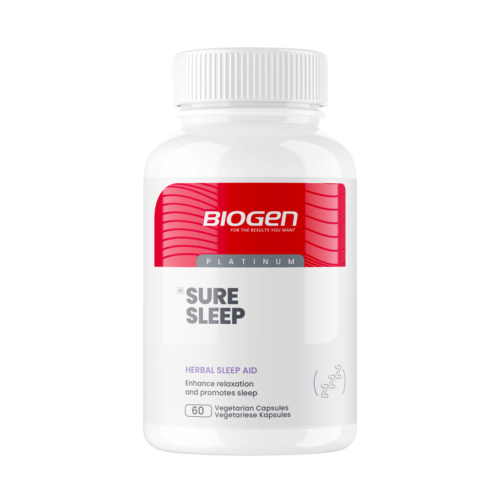
We live in an era where the ‘work hard, play hard’ philosophy lies at the hearts of modern hustle culture, stressing due to poor sleep is rife
The problem is that this all-or-nothing approach to work and social life leaves little time to focus on our health.
While late nights out on the town to blow off steam after long work hours seems like a good idea to unwind and decompress from all the stress, living this lifestyle comes at the expense of healthful habits like regular exercise and sufficient sleep.
We need sleep to manage stress
The problem is that we need adequate sleep and regular exercise to counter work and other forms of stress.
We should all spend at least a third of our life asleep as sleep is a recuperative and rejuvenating state that enhances every biological function in the body, from anabolism and metabolism to cognitive and physical performance.
Shawn Stevenson, author of the book Sleep Smarter, calls it “a secret sauce” because there is not one facet of a person’s mental, emotional or physical performance that is not affected by sleep.
Specifically, we need sufficient sleep – between 7-9 hours a night – as well as adequate deep and REM (rapid eye movement) sleep to repair cells in our brain, organs and soft tissues like our muscles, tendons, ligaments and skin.
Various biological processes that happen while we sleep also restore the immune, nervous, endocrine (hormonal) and muscular systems.
As such, the repair and rebuilding process that happens while we sleep support cognitive skills such as speech, memory, innovative, and flexible thinking while enhancing overall health and boosting recovery and adaptations to exercise.
Consequences of a lack of sleep
Conversely, a lack of enough quality sleep each night can affect our mental and physical performance in various ways. Studies have found that sleep deprivation (also known as cumulative sleep debt), affects immune and brain function and also negatively impacts various aspects of our physiology.
The effects are on our hormonal system can result in blunted insulin sensitivity, a decrease in important anabolic hormones such as testosterone and growth hormone, and a rise in stress hormones like cortisol. Worryingly, chronically elevated cortisol levels can break down muscle, increase fat storage, accelerate bone loss, and may harden arteries, which can cause hypertension.
And cortisol reduces those feel-good hormones and neurotransmitters like serotonin and dopamine in the brain, which is why chronic stress is often linked to depression. Furthermore, researchers at the Department of Neuroscience at Uppsala University in Sweden linked a lack of sleep to changes in gut bacteria that populate our gut.
Additional potential acute effects of poor sleep habits include high blood pressure, heart disease, and stroke, and shorter life expectancy.
Longer-term implications of sleep debt
And don’t think that you can rectify poor sleep with a few nights of more time in bed over the weekend to ‘catch up’.
In one study, researchers from the University of Jyvaskyla in Finland showed how the combination of long working hours and a lack of sleep earlier in life have negative effects on a man’s health in his later years.
The research found those who worked more than 50 hours and slept less than 47 hours a week in their prime working years had poorer health in old age. These conditions included poorer scores for physical functioning, vitality and general health than their peers who had normal work and sleep habits when they were younger.
Lead researcher Dr. Mikaela Birgitta von Bonsdorff, was also quoted by Reuters as saying that truncated sleep increased stress and strain, which are important aspects of quality of life.
The stress and sleep snowball effect
And it’s sleep’s link to stress that should concern us all. Firstly, sleep and stress have an inverse relationship – the higher our stress levels, the poorer our sleep becomes.
But the major issue is that sleep is possibly the most important intervention we have in managing and combating stress. The end result is a snowball effect, where stress begets more stress as our bodies become overwhelmed due to a lack of adequate sleep.
With less shuteye overall and insufficient time spent in restorative deep and REM sleep cycles, the important biological processes that happen overnight fail to support and repair our nervous and hormonal systems to combat stress.
The resultant chronic stress often leads to cortisol dysregulation as levels of this stress hormone remain elevated. And this state can increase systemic inflammation, reduce immunity, and raises the risk for cardiovascular disease.
Constantly living in fight-or-flight mode also pumps out more adrenaline, which can make you feel constantly on edge and your mind races. This state often creates feelings of anxiety and makes it difficult for sufferers to fall and stay asleep at night.
Sleep more to stress less
One way to get immediate benefits is to take strategic naps. A study published in the Journal of Clinical Endocrinology & Metabolism found that a 30-minute daytime nap was able to restore hormonal function and raise levels of proteins involved in stress management and immune system function back to normal following two nights of severe sleep deprivation.
It also pays to take a proactive approach to stress management with daily practices like a nutritious diet, mindfulness or meditation practices, yoga and stretching, daily activity and some light to moderate exercise. And, of course, we need to take steps to support healthy sleep.
These measures could include:
- Practising sleep hygiene: implement a regular sleep schedule to go to bed and wake up at regular times each day.
- Reducing exposure to blue light from screens at night – it can help you fall asleep faster
- Increasing your exposure to sunlight during the day.
- Reducing your sugar and/or caffeine intake during the day.
You can also aid restful sleep and improve sleep quality with various natural supplements, like those found in the Biogen Platinum range. For example, Biogen Stress Relief is a proprietary formula of selected botanicals that may support stress management.














